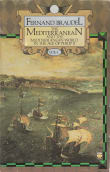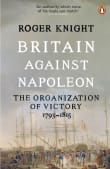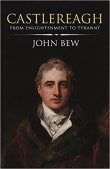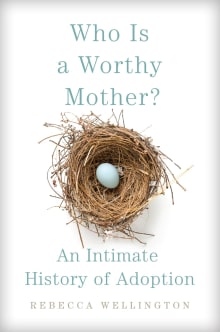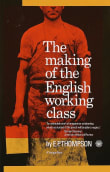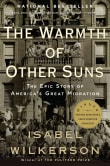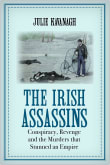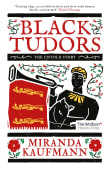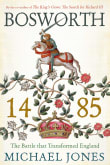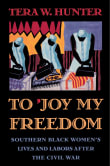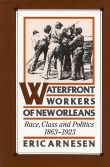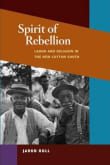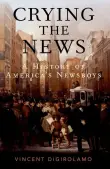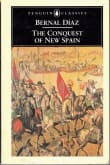The Making of the English Working Class

Book description
Fifty years since first publication, E. P. Thompson's revolutionary account of working-class culture and ideals is published in Penguin Modern Classics, with a new introduction by historian Michael Kenny
This classic and imaginative account of working-class society in its formative years, 1780 to 1832, revolutionized our understanding of English social…
Why read it?
6 authors picked The Making of the English Working Class as one of their favorite books. Why do they recommend it?

I read this book the summer before I returned to university to complete my B.A. Thompson’s book convinced me that one of my first loves, the study of history, was where I wanted to be.
It is a ground-breaking study of people overlooked, ignored, and condescended to by historians, whose lives were changed by early forms of industrialization in late 18th and early 19th-century England. Thompson treats these people as active agents in shaping their worlds socially, economically, and politically, and he takes their role in “making class” and political activism seriously.
It is also beautifully written, and the depth…
From Cecilia's list on social and women’s history.

I love this book because, as someone from a working-class background, this book really spoke to me as young person – I was born two years after it was published in 1965. It is profoundly wrong and romanticizes its subject, but it remains a classic, because Thompson was a brilliant writer and because henceforth no one could ignore those previously excluded from the historical narrative.
From Stuart's list on getting started with early modern history.

There are few scholarly books I consider quasi-sacred. Books that changed the course of my thinking and set me on my current path. The ones I have memorized lines from and keep handy at all times. E.P. Thompson’s The Making of the English Working Class is one of those books.
His theories of working-class consciousness transformed my understanding of what “class” is in the first place. The colorful artisans, craftsmen, and makers of the pre-industrial era found themselves caught between worlds as their crafts and traditions were dying.
The way they demanded dignity and a decent life as the ravages…
From Betsy's list on to make you excited about labor history.
If you love The Making of the English Working Class...

Having first read this 1963 classic of English historiography in graduate school, Thompson’s masterpiece gets better every time I re-read it.
Although primarily considered a work of social history, I love the way Thompson interweaves political, cultural, intellectual, religious, and social history throughout the text. This book focuses on the late eighteenth and early nineteenth centuries and shows the resilience of conservative ideas during a period shaped by the Industrial, American, and French Revolutions, as well as the Napoleonic Wars and their aftermath.
In an age when many books go out of date within a decade or two, this classic…
From Kenneth's list on British and Irish history with a wide range of topics.

This doorstop of a book, more than a half-century old, is a sterling example of how to recover the lives of ordinary folk. The subjects here are laboring people who suffered through, accommodated, and resisted the astonishing upheaval of British industrialization. Over the years, Thompson has been criticized for how he defined class and for failing to attend to the women who fought and suffered alongside the men. These are fair criticisms. What stands is his determination to explain how people who were considered lowly and backward by the elites of their day contributed to “the making of history,” and…
From Laura's list on giving human faces to history.

This is the classic study of the other side of Regency politics: the working class’s struggle to achieve class consciousness and assert themselves in a threatening new industrial environment, where many of them were losing their jobs. Thompson has a Marxist support for the working-class struggle, combined with a surprising respect for the statesmen who prevented that struggle from erupting into revolution. Forestalling the emergence of Thompson’s working-class consciousness was a primary objective of Pitt, Liverpool, and their colleagues and generally, they succeeded; working-class consciousness only emerged, encouraged by the Whigs, in the Reform Bill struggle of 1831-32, after the…
From Martin's list on Regency politics.
If you love The Making of the English Working Class...
Want books like The Making of the English Working Class?
Our community of 12,000+ authors has personally recommended 100 books like The Making of the English Working Class.


